Introduction to Panamanian producing areas and manors
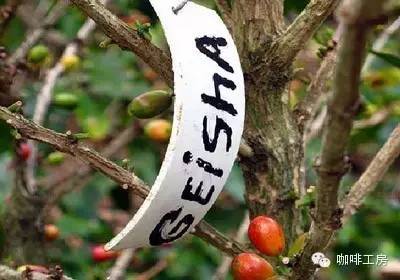
The finest coffee in Panama (Panama) is grown in the west of the country, near Costa Rica and the Pacific Ocean. The Boquet district of Chiriqui province is the most famous for its coffee, as well as Wakan, Santa Clara and Kendra. Other areas include David, Remacimeinto, Bugaba and Tole. Only coffee grown at elevations between 1300 and 1500 meters above sea level is considered special coffee.
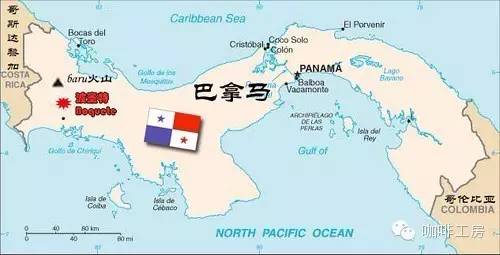
The BOQUETE region of Panama, located in the province of CHIRIQUI on the border with Costa Rica, is home to Panama's famous GEISHA coffee and is famous for producing high-quality Arabica coffee. The Tedman & McIntyre (TEDMAN&MACINTYRE ESTATE) estate, located in the mountain area of Poggett 4000 feet above sea level, comes from the two earliest coffee families in Panama, the Tedman family and the McIntyre family.

There are three ways of plantation: sunshine plantation, full shade plantation and semi-shade plantation. Plantations with more than 50 plants per hectare are fully shaded plantations, 25-50 plants are semi-shaded plantations, and less than 25 plants are called sunshine plantations. What is the effect of shading and shading on coffee in the plantations of the two neighbors with the same planting conditions? Shading plantations can slow down the ripening time of coffee fruits, so there are more flavor substances in coffee cherries, so shading itself increases the cost and reduces production, and its coffee flavor is higher than that of semi-shaded plantations under the same planting conditions. now most plantations in Colombia are associated with coffee trees and bananas because Arabica trees are becoming more and more dwarfed. So when the banana tree rises, it acts as a shade.
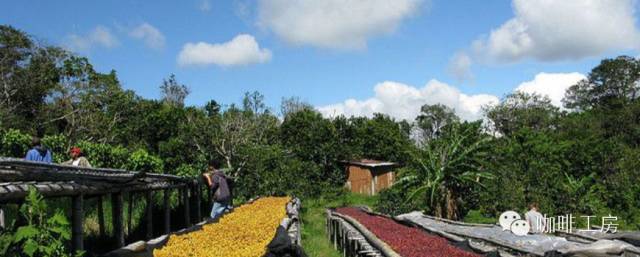
Villa Donica Manor
Boquet green green raw beans, high moisture content, beans are soft beans, so good heat transmission, so there is no need to worry about uneven baking, aroma and taste are excellent, smooth taste, dark chocolate, nutty aroma, high alcohol thickness, low acidity, long-lasting.
[country of origin]: Panama
[producing area]: Boquete
[altitude]: 1550-1700 m
[manor]: Villa Donica Manor
[treatment]: Wet-Process Style washing
[grade]: SHB
[size]: more than 17 mesh
[variety]: Kaduai
[climate]: rainy season May-December, dry season January-April
[soil]: volcanic soil
[recommended baking degree]: moderate (CITY+ ~ FULL CITY)
Manor of Love Sage of Panama
[Origin]: Panama
[producing area]: Mount Baru volcano, the highest peak in western Panama
[manor]: lover's Manor / FincaLaValentina
[grade]: SHB
[growth altitude]: 1500-1675 m
[treatment]: fine washing treatment
[special certification]: green rainforest certification
[baking degree]: shallow baking city
[flavor description]: the tip of the tongue feels sour at the entrance, but it is mild and round in the mouth, with a strong sweet taste and sweet taste. The lower the temperature, the finer the acidity. Charm is also quite long-lasting, let people feel good satisfaction!
Affectionate Manor, which covers an area of about 12.5ha, is a miniature estate in Panama. According to the owner, the 8.5ha varieties range from the common typica, RedCatuai and Pacamara. Since 2008, a small number of areas have begun to grow Geisha coffee, which now accounts for nearly half of the total; the manor is between 1500 and 1675 meters above sea level, with 3.5 hectares of primary forest and various fruit trees, including alpine cypress, pine and eucalyptus trees, a typical example of self-sufficient manor.
Love Sing Manor is best known for winning the championship in the 2011 Best Panama Competition (BestofPanama), with a cup score of 92.3 points, which not only beat the most indicative and successive championships of the Jade Manor at that time, but also broke the record high of US $70.25 per pound. The outstanding achievements in the next few years have been innumerable, and the final batch of the finest competition in Panama includes the fifth place in 2012, the 10th place in 2013, the 12th place in 2014, and the 14th place in 2015.
FincaLaValentina Manor, owned by the Osorio family, is located in Panama,Boquete,Horqueta, Panama, with varied topography and humid climate. The average temperature is about 15-20 degrees, and next to the manor there is a forest surrounding the slate mine and two clear waters, which is rich in resources and is a great planting paradise.
FincaLaValentina is committed to the cultivation of boutique beans, in addition to personalized care, the local unique micro-climate has also created their Arabica coffee beans (SHB), outstanding high quality. In 2011, the estate's Geisha (Rosa Coffee beans) ARISTAR won the first place in the Panama competition. In 2012, the estate's GeishaARISTAR and Valentina also won high scores of 87.07 and 84.66 respectively.
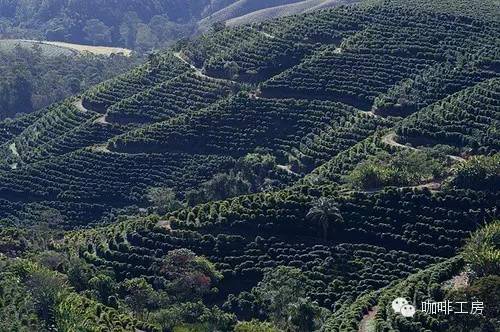
Alida Manor
[name]: Alida Manor Sunshine (Elida Natural)
[producing area]: Pocket (Boquete)
[manor]: Alida Manor (Elida)
[variety]: Catuai 85%, Typica & Bourbon 15%, Geisha (small amount)
[treatment]: Natural
[altitude]: more than 1800 meters
[planting soil]: volcanic soil (Volcanic clay)
[flavor description]: tropical fruits, spices, nuts, milk chocolate
The history of the farm dates back to 1918. The farm was owned by the Lamastus family, and the name of the farm, Elida Alida, was the name of the then farmer, Mrs. Robert Louis Lamastus. Elida Manor is located in the Boquete producing area, the elevation of the manor is almost the highest in Panama, and nearly half of the area is in the National Conservation Park, is a rare ultra-high altitude manor in Central America! Elida Manor has a total area of 65 hectares, more than half of which are located within the Baru Volcano National Park, 30 hectares of the estate are planted with coffee trees, and the remaining 35 hectares are virgin forests. Coffee is grown from 1670 to 1850 meters above sea level, making it one of the two highest coffee farms in Panama (the other estate with these elevations should be Carmen in the Vulcan Valley).
The rugged mountain of Balu is a young volcano with an elevation of more than 3400 meters, which is an active volcano. Due to the great temperature difference in the morning and evening, the coffee in Alida Manor needs 5 years of care before it can be harvested for the first time. The waiting time for receipt is quite long (usually only 3 years for coffee in the producing area). Although the plant grows slowly, it is very helpful to the development of coffee flavor. After entering the harvest period, the ripening period of coffee is often more than a month due to the relationship of temperature. when irresistible factors such as hurricanes and heavy rains come on the eve of ripening, it is well known that it will cause heavy losses, but because the beans do not meet the harvest standards of the manor, under the insistence of quality, refuse to rush to harvest, resulting in a sharp decline in harvest! The risk is actually much greater than that of other low-altitude estates.
There are three main varieties planted in Elida Manor, namely, Catuai (Kaduai), Typica (Iron pickup) and Geisha (Rose Summer). The processing plant of the manor is halfway up the hillside. After the coffee is picked, it can be transported to the factory for processing as soon as possible to ensure that the quality of the coffee fruit is not affected. Of course, Elida's environment is also suitable for growing other high-quality temperate crops, especially tree tomatoes and some uncommon high-altitude fruits, which are interestingly often found in Elida coffee.
In addition to the unique ultra-high altitude and microclimate, Mr. Wilford, the owner of the manor, has also made considerable efforts in harvesting and processing. In order to meet the highest standard, the coffee at Elida Manor is only allowed to pick the most ripe coffee fruit (Ripe on Pinton) by hand with high maturity and natural high sugar content of pectin, which is also the basis for producing high-quality Elida flavor.
Mr. Wilford, the owner of the estate, in addition to the extremely strict treatment of coffee cultivation, the "purification" after the processing of raw beans is also more stringent than those in the same industry. Alida of Panama, for example, needs to go through more than 5 months of low-temperature Resting to remove green after raw beans are processed, so that the flavor of coffee can be more balanced and full development. (low-temperature Resting is a concept of raw bean purification that was vigorously promoted by coffee master George Howell in 2006. We found that raw beans in subtropical places need to be kept at low temperature, but different treatments and elevations will change the time of low-temperature Resting. For Alida, Panama, 5 months of low-temperature Resting is the best.)
Cup tester Ken Davids scored a high score of 93 for coffee at Elida Manor in 2012! Elida is also a regular on the bean list of players from all over the world in the World Barista Competition (WBC). It is also common to see contestants use a single Elida to concentrate SOE in the finals of Taiwan's TBC (Taiwan baristas contest) and domestic CBC (Chinese baristas competitions).
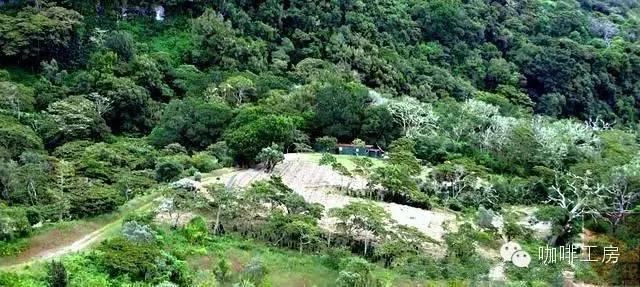
Caisan Louis Manor
Panama boquete casa ruiz S.A.
Caesar, the Borquat region of Panama. Louis
[cup test] clean and fresh fruit flavor, elegant and charming flower aroma, citrus slightly sour, bright and delicate taste, full fruit sweet aroma.
[country] Panama
[producing area] Bocquette
[manor] CASA RUIZ S.A. Caesar. Louis
Washing treatment
[variety] 40%Typica30%Caturra 20%Catuai 10%Mundo Novo and Bourbons Bons
[altitude] 1400 m
[grade] SHB
Volcanic soil
Caesar of Panama. Louis Manor, founded in 1920, is located in the Boqui specialty area of Mount Baru, located in the Poquette Valley of Mount Baru in northwestern Panama. After three generations of coffee planting experience, the family combines more than 300 local small family farms, and small farm coffee farmers join partners from planting, post-processing, baking and marketing, unlike a single manor that cannot increase the scale of production. There is a variety of Typica Caturra Catuai Mundo Novo and Bour Bons. The average annual rainfall is 3000 mm (between May and November), the annual average temperature is 14-24 degrees, and the elevation is more than 1400 meters.
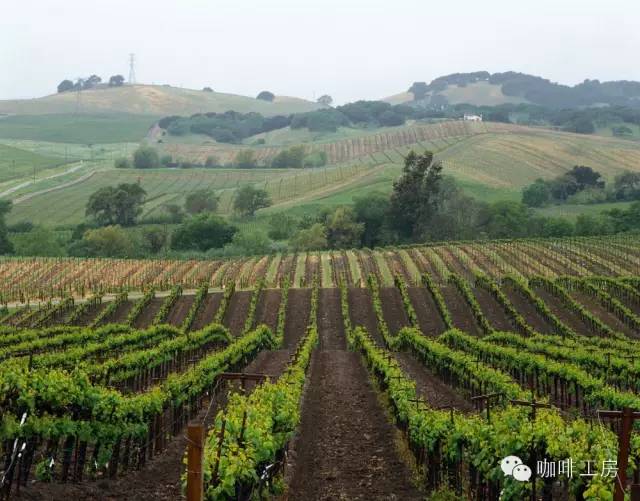
Casa Ruiz, S.A. The family and his coffee partners chose to follow Boquete's traditional eco-friendly cultivation practices, as well as the rich natural environment provided by its natural tree population, making it a transit habitat for migratory birds.
Casa Ruiz, S.A. Because of the high quality technology, strict control of every detail, layer upon layer screening, recording, review, he is undoubtedly the best Panama (Best of Panama) One of the excellent estates, from the appearance of raw beans, consistency, freshness to dry aroma and flavor are quite excellent, in the aroma performance is very characteristic, clean and fresh taste, strange fruit flavor and aroma, exudes elegant charming flower fragrance, rice, almond tea, ripe apple, fermented ripe fruit mellow, berry, cherry, dates, brown sugar, jasmine, orange, sweetness solid, mild clean balance, Ends with a persistent, lively, rich, fruity sweetness.
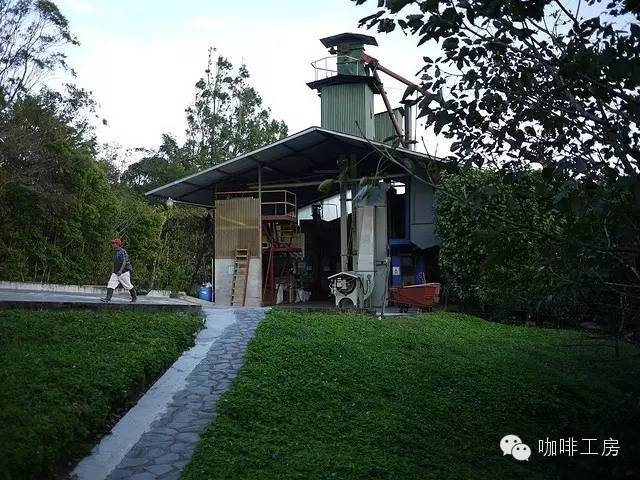
Panamanian Emerald Manor Rose Summer Coffee beans
Panama Geisha (Hacienda La Esmeralda)
[Origin]: Panama
[producing area]: located on the hillside of Mount Baru, the highest peak in western Panama
[manor]: Esmeralda (Jade Manor) / Hacienda La Esmeralda
[grade]: SHB
[growth altitude]: 1450m
[treatment]: fine washing treatment
[special certification]: green rainforest certification
[baking degree]: shallow baking city-
[flavor description]: oolong tea, peach, honey, fresh and comfortable, bright and balanced, the aroma is extremely layered, the whole aroma and caramel sweetness are wrapped together, the tip of the tongue feels sour obviously, just mild and round in the mouth, the fruit is sweet and sweet, like swallowing a mouthful of fresh fruit tea, sweet and fragrant. The lower the temperature, the finer the acidity. Charm is also quite long-lasting, let people feel good satisfaction!
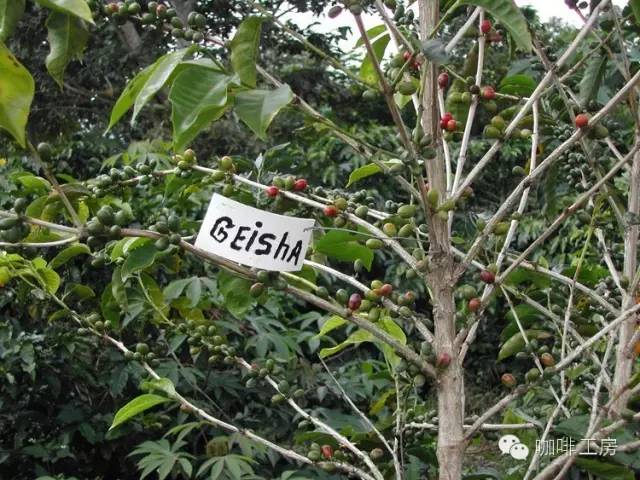
The Emerald Manor of Panama (La Esmeralda) is located in the corner of the Baru volcano, so the coffee beans produced in this area are mostly named after Baru Mountain, and the area around Boquete is scenic. There are many leisure hotels, villa, resort estates, and even along the important river Rio Caldera. La Esmeralda is located on the right side of the river in Jaramillo, and later to the higher elevation area of Ca?as Verdes on the left side of the river to grow coffee, thanks to Rudolph Peterson's decision to buy the industry.
La Esmeralda Manor has won 12 coffee competitions so far, and the highest bidding record for three times in online open bidding is US $21 in 2004, US $50.25 in 2006 and US $130 in 2007. Of course, other countries have also raced a pound of good coffee close to $50 (Brazil's CoE champion Fazenda Santa inflows in 2005) and Guatemala CoE champion El Injerto $80.20 in 2008, but you pay attention to the time point, that is, when La Esmeralda set a record price, there was no bid to surpass her before, but she will surpass others and say she is a record creator, no fluke!
La Esmeralda Manor was bought by Price Peterson's father, Rudolph A. Peterson, a Swedish banker. He was the president of Bank of America and was a big shot in the financial circle at that time. Rudolph bought Hacienda La Esmeralda only for vacation and later retirement. It should not have been expected that the estate would become world-famous and even become the representative of Panamanian boutique coffee estate. Price took over according to altitude and micro-climate. And according to the cup test performance and planting varieties, the market is divided into three major brands to sell (Esmeralda Special,Diamond Mountain grows,Palmyra)
Palmyra (Rainforest Alliance Certification) this brand of coffee is grown in Catuai near the Baru Volcano Park. It has a typical Panamanian Bouqete high-altitude coffee flavor. Sour will not be too exciting, sweet nuts and vanilla chocolate flavor. S of nuts, Palmyra is actually the highest yield of La Esmeralda coffee, accounting for about 70% of the total family coffee production

Hope Manor
[country]: Panama
[producing area]: Pocket
[rating]: SHB
[variety]: Katura, Katuai, Tippika
[baking degree]: CITY+ (moderate)
[treatment]: washing
[planting environment]: 1400-1600m above sea level
[producer / company]: hope Manor Hacienda La Esperanza
[certification]: organic certification
[taste]: this organic Pokuit, dry and wet with nutty and berry aromas, low acidity, soft, high sweetness, body delicate and mellow, very long retention time, the overall feeling is a bit similar to baby rose summer and sweet rose summer.
The Hope Manor is located at an altitude of 1400-1600 meters, with an output of 300,700 bags. Most of the processing is done on the farm, washing and drying in the sun, and the shell, pulp and mucous membrane are used as fertilizer. The estate grows 60% Katula, 20% Katuai and 20% iron pickup and other varieties, the most famous being the rose summer seed, which won the championship in BEST OF PANAMA in 2008. They also plant many local trees as shade trees and nourish the soil, including orange trees and many tropical fruits such as lemons and grapefruit. There is a huge tropical rainforest nature reserve in the manor, and colleagues have at least three different mountain wells with rich rainfall, with an average annual rainfall of 3200 mm and a weather temperature range of 16-23 degrees during the day and 14-20 degrees at night.
Hope that the manor is different from other manors, with doctoral botanists, three professional cup surveyors, 100 full-time employees, and currently manages a manor under its jurisdiction. The estate is owned by the Herrera brothers. In fact, the grandfather of the Herrera brothers, who ran a coffee farm in the Trujillo district of Colombia, gradually declined, and the two brothers left Colombia. But they did not give up their dream of going back to their hometown to run a coffee farm.
The first estate that Herrera bought when he returned home was Trujillo's La Esperanza, which is very close to their grandfather's original farm and is now used as a regional headquarters. The manor itself is 100% organic, with a variety of coffee trees including Colombian species, Castillo, Caturra and more than 14000 organic roses. Next, Herrera bought four estates in Trujillo and Caicedonia, north of Trujillo. Together with the La Cardeida estate in Boquete, Panama, which was leased in 2005, it now has six estates and a total coffee planting area of 213 hectares.
Cafe Granja La Esperanza's estate is located in eight unique microclimate regions of the three Colombian mountains, giving their botanists an excellent opportunity to experiment with different microclimates and land flavors, different treatments, and different coffee varieties, combining the rationality of scientists, the sense of smell of businessmen and their insistence on the quality of coffee. For example, they create different treatment steps and norms for different microclimates and varieties. From seedling cultivation to export, there are 95 data points to manage all the data.
Hernando Tapasco's team, the lead botanist, set up a climate station on the estate to track weather data and help make harvest decisions. The data on the farm were collected continuously and analyzed once a week. After harvest, they will compare weather data, production data and cup test data and analyze the correlation. The harvesters of Rose Summer are strictly trained to collect only ripe cherry fruits and are paid by the day, unlike other manors by weight. In order to prevent workers from harvesting unqualified cherries in order to improve their performance, half of the harvesting workers have more than six years of experience. After the fruit is harvested, it will be sent to the central processing plant in Hope Manor, and each batch of rose will be marked and dealt with separately. First go through the drying stage three days ago in the sun field, and then move to the small tower to dry. Strict quality control is another key. There are 40, 000 to 45, 000 rose trees in Cerro Azul Manor, of which only 5-7000 can produce rose beans with the Cerro Azul brand.
The experiment and innovation of Hope Chateau on variety seems to be endless, constantly experimenting with different new varieties, in addition to the organic Kaddura, which used to make up the majority of the area of the Hope estate, from rose summer, organic rose summer, mocha, bourbon (including different red, yellow, Tekizik bourbon), pointed bourbon, Pakamara, San Bernardo and Pache, they really bring the chateau's serious attitude towards grape varieties to coffee. After the rose summer, from the Pacamara, Bourbon and even the pointed Bourbon produced by the Hope Manor, continue to create the surprise and admiration of the boutique coffee world.
Their actions finally paid off. As early as the 2008 "Best Panama" competition, I hope that the La Cardeida rented by the manor will win the best Panama championship with a high score of 93.16. The best coffee treble of the year in 2012 was won by the three main growers of Rosa Rosa: Cerro Azul second, Las Magarita third and Buenos Aires Experimental Manor seventh.
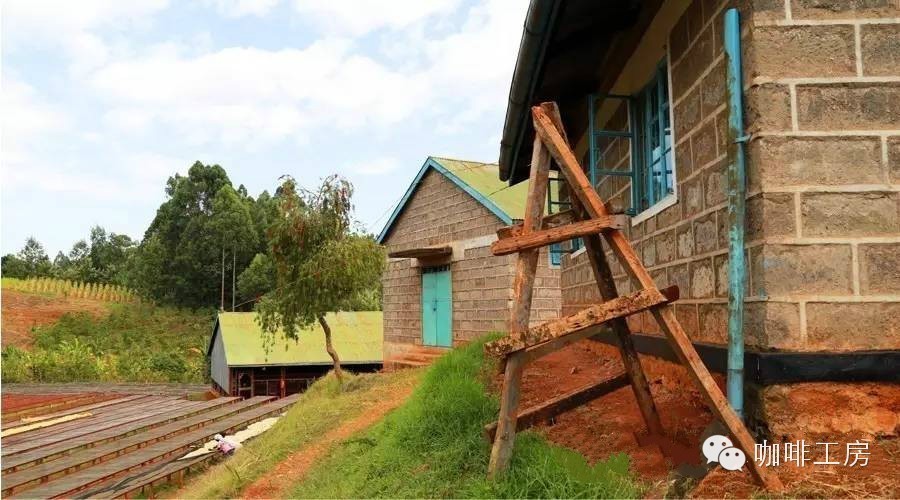
Hartman Manor
[Origin]: Panama
[manor]: Hartman Manor
[producing area]: Volcan
[variety]: Arabica,Caturra,Typica
[planting environment]: 1260-1500Meters
[treatment]: red wine treatment winey
[baking degree]: City+ (moderate)
[taste]: dark chocolate, dark fruit aroma, bright citrus acid, round fruit taste, stone fruit tone, honey, citrus, apple, with delicate floral aromas.
Hartman's story, like his coffee, is legendary. Hartman Manor is located in Chilidge, Santa Clara. The founder is called Mr.Alois St. Hartmann (Luis Hartmann). He was born on June 20, 1891 in the Moravilla region of Austria and Hungary in what is now the Czech Republic, and died on May 25, 1970 at the age of 78.
After the beginning of World War I, he was abandoned as a little boy. Thanks to his mother, he was able to hide in a ship bound for Pennsylvania and survived. Both of his brothers died in the war after joining the army. Luis Hartmann and his friends traveled to some countries until he came to Panama in 1911 and settled in Chiriki province in 1912, mainly in the Kendra region. He built his first cabin in the primeval forest.
Today's Hartman Manor is a family business founded by Latip Hartman (son of Eloise) in 1940. In 1966 Latip married Dinola Sandy of Costa Rica. They have five sons, Latipa Jr., Alan, Alexander, Alice and Kelly. Each family member is responsible for the growth management, harvesting and handling of the coffee and the visit to the manor. A family estate that has grown coffee for more than 100 years is a legend in itself.
The family business has a state cup testing laboratory and a sample baking room. Rigorous cup test of each batch of coffee fruit. This ensures that the coffee quality at Hartman Manor is stable and is always looking for progress. Their scientific attitude towards coffee and nearly 100 years of family experience ensure their excellent production.
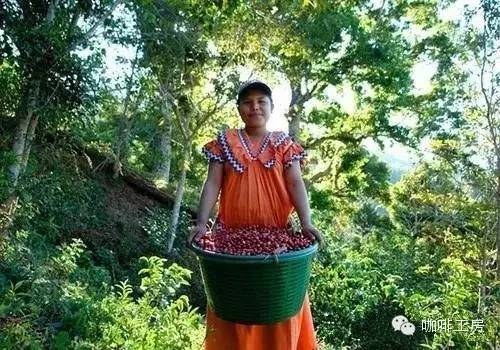

Carmen Manor
[Origin]: Panama
[manor]: Carmen Manor
[grade]: SHB, EP
[altitude]: 1750 m
[soil]: black soil
[particles]: 17 mesh
[variety]: Kaduai Catuai 70%, Kaddura Caurra20%, Iron pickup Typica, Dwarf San Ramon San Ramon, New World Mundo Novo 10%
[raw bean treatment]: semi-washed
[taste]: melon, brown sugar aroma, slight acidity, similar juice consistency, citrus flavor, drupe, pear.
Carmen Manor Coffee is a coffee estate dominated by the family. The family has long grown coffee under the principle of providing high-quality coffee and protecting the environment. Efrain and Carmen Franceschi began growing Arabica coffee varieties on their estate in 1950. Today, Carmen Manor single processing plant produces about 1200 bags (60 kg each) of unique high-quality coffee beans every year!
Carmen Manor is located in the volcanic valley at an altitude of 1750 m. The manor is blessed with fertile soil and good natural shade. In addition, this area is also affected by the dual climate of the Pacific and Atlantic Ocean, and the climate is cool. The dual characteristics of no frost damage at night and dry weather can create excellent growth conditions! Thanks to the volcano's black soil and good drainage facilities, Carmen Manor has high-quality Catuai,Caturra and Typica Arabica coffee!
Carmen Manor has 60% of the natural primeval forest, where coffee trees are planted and grow in the shade of these natural trees! As a result, the farm has been certified by Rainforest Alliance Association as ECO- OK environmentally friendly coffee! The coffee beans are harvested from late December to March of the next year, and the mature coffee cherries are harvested artificially. The waste from the fruit treatment (if the meat or juice is properly converted to composting or recycling, the raw beans are initially sun-dried and stored in the exclusive warehouse for secondary moisture content adjustment, and then shelled before export to maintain good quality of raw beans!
Carmen Manor has obtained the Ecological Conservation Certification (Certified Eco-OK Coffees) issued by the Tropical Rainforest Alliance, which is very strict and requires environmental and organic requirements at every step from planting to raw bean grinding, such as species diversity in the manor, zero pollution treatment process, reduced or restricted use of artificial chemical fertilizers, social and economic security of manor coffee farmers, and so on.
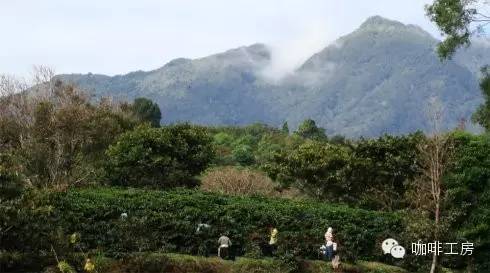
There is a moving story behind every kind of boutique beans and every champion manor that is famous in international competitions.
Important Notice :
前街咖啡 FrontStreet Coffee has moved to new addredd:
FrontStreet Coffee Address: 315,Donghua East Road,GuangZhou
Tel:020 38364473
- Prev
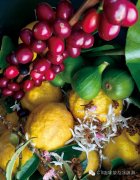
Reveal the reason why Panamanian coffee is so popular all over the world
Global coffee production is affected by many factors, and these factors are even more important for coffee flavor: variety, planting altitude, treatment, storage, all of which are indispensable. However, there is one factor closely related to the climate. The impact of climate on coffee cultivation is more important than any of the above. I will focus on the unique atmosphere of coffee producing areas around the world.
- Next
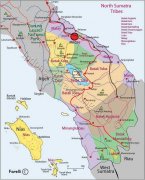
There are some important common sense about Sumatra and Mantenin that you may not know.
It's the same as the diary and coffee common sense I wrote in the past. We have long been accustomed to some concepts, but they may not be unbiased. So before I officially write about the origin of coffee, I would like to make some small corrections to the long-standing misunderstanding of coffee in Sumatra. Manning coffee is in the minds of most of us. Manning coffee is almost equal.
Related
- Detailed explanation of Jadeite planting Land in Panamanian Jadeite Manor introduction to the grading system of Jadeite competitive bidding, Red bid, Green bid and Rose Summer
- Story of Coffee planting in Brenka region of Costa Rica Stonehenge Manor anaerobic heavy honey treatment of flavor mouth
- What's on the barrel of Blue Mountain Coffee beans?
- Can American coffee also pull flowers? How to use hot American style to pull out a good-looking pattern?
- Can you make a cold extract with coffee beans? What is the right proportion for cold-extracted coffee formula?
- Indonesian PWN Gold Mandrine Coffee Origin Features Flavor How to Chong? Mandolin coffee is American.
- A brief introduction to the flavor characteristics of Brazilian yellow bourbon coffee beans
- What is the effect of different water quality on the flavor of cold-extracted coffee? What kind of water is best for brewing coffee?
- Why do you think of Rose Summer whenever you mention Panamanian coffee?
- Introduction to the characteristics of authentic blue mountain coffee bean producing areas? What is the CIB Coffee Authority in Jamaica?

